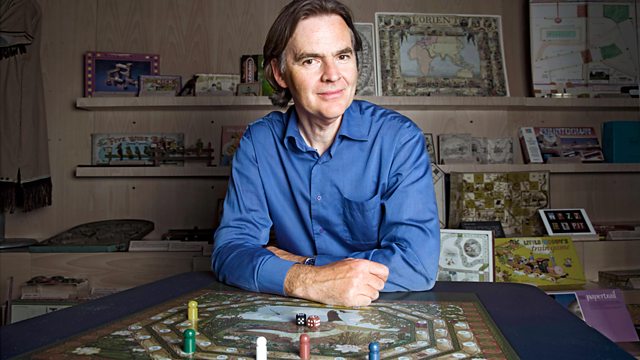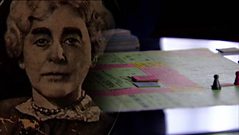
Monopolies and Mergers
Series about the history of popular games in Britain. Benjamin Woolley traces the political and social impact that board games have had in the past 200 years.
Three-part series presented by historian Benjamin Woolley about popular games in Britain from the Iron Age to the Information Age, in which he unravels how an apparently trivial pursuit is a rich and entertaining source of cultural and social history.
In part two, Woolley traces the surprising political and social impact that board games have had in Britain over the last 200 years. It was the British who developed the idea of the board game as an instrument of moral instruction and exported it to America. There, it was adapted to promote the American Dream of free enterprise and economic success.
This crusading element in board games is perhaps best exemplified by the best-selling game in history - Monopoly - which celebrated wealth and avarice in the wake of the Great Depression. Ironically, this most capitalist of games was derived from a radical socialist game first published in Britain in 1913.
Woolley goes on to trace the development of board games through their post-war heyday, when together with Cluedo and Scrabble, Monopoly formed a holy trinity of British family favourites that endures to this day.
Now in the information age, board games have evolved to include fantasy role-playing games like Dungeons and Dragons - an American invention. The British continue to produce niche political games like War on Terror which plays on satire, but mainstream British games designers have joined the computer games revolution.
Last on
More episodes
Previous
Next
Clip
-
![]()
Monopoly - Who Deserves The Credit?
Duration: 00:34
Music Played
-
![]()
The Who
Baba O'Riley
-
![]()
Edward Elgar
Pomp And Circumstance No.1 In D Op.39
-
![]()
Kula Shaker
Govinda
-
![]()
New Order
Blue Monday
-
![]()
T. Rex
Children of the Revolution
Broadcasts
- Mon 14 Dec 2009 21:00
- Tue 15 Dec 2009 02:00
- Sun 20 Dec 2009 20:00
- Mon 21 Dec 2009 03:00
- Fri 5 Feb 2010 01:30
- Mon 27 Jul 2020 22:40


